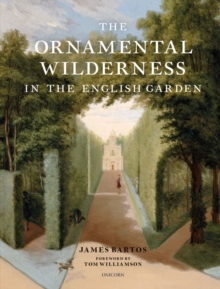| Description: | Select Guide Rating
‘In this wide ranging and comprehensive survey of the designed landscapes of the late seventeenth and early eighteenth centuries, James Bartos argues convincingly that ornamental wildernesses should be viewed as distinctive design features which, when linked across an extensive terrain, took on the character of the whole landscape. As a result of this striking analysis, our understanding of the celebrated layouts at Wrest Park, Chiswick and Stowe, and many more besides, must be revised. Contrary to the received wisdom that wildernesses led inexorably to the more informal parkscapes associated with William Kent and Lancelot ‘Capability’ Brown, it was only when they were dismantled in the mid-eighteenth century to provide more loosely controlled, open glades and greensward that the English Landscape Style emerged. This ground-breaking study ranges in its literary compass from classical authors through contemporary writers on gardens and gardening to modern critical authorities, while its visual focus on design manuals and individual gardens and landscapes is presented through a wealth of engraved prints, maps and present day photographs. Bartos considers the making, planting and maintenance of wildernesses, their continental precedents, thematic resonances – Classical, Biblical, Druidic, Patriotic – and the eventual development of these often numinous spaces into mature gardens followed by their inevitable demise. The book has all the attributes of a true wilderness – surprise, variety and, above all, delight – is engagingly written and a tour de force of meticulous scholarship.’ Professor Timothy Mowl FSAThe Ornamental Wilderness in the English Garden reinterprets the English formal garden of the late seventeenth and early eighteenth centuries through the perspective of a typical feature of those gardens, the ornamental grove, called a wilderness. In its mature form, the wilderness constituted most of the garden, shady and private, a place for retreat as well as social activity, with a seeming naturalness achieved through artifice, where cultural incident and nature were equally appreciated.
‘In this wide ranging and comprehensive survey of the designed landscapes of the late seventeenth and early eighteenth centuries, James Bartos argues convincingly that ornamental wildernesses should be viewed as distinctive design features which, when linked across an extensive terrain, took on the character of the whole landscape. As a result of this striking analysis, our understanding of the celebrated layouts at Wrest Park, Chiswick and Stowe, and many more besides, must be revised. Contrary to the received wisdom that wildernesses led inexorably to the more informal parkscapes associated with William Kent and Lancelot ‘Capability’ Brown, it was only when they were dismantled in the mid-eighteenth century to provide more loosely controlled, open glades and greensward that the English Landscape Style emerged. This ground-breaking study ranges in its literary compass from classical authors through contemporary writers on gardens and gardening to modern critical authorities, while its visual focus on design manuals and individual gardens and landscapes is presented through a wealth of engraved prints, maps and present day photographs. Bartos considers the making, planting and maintenance of wildernesses, their continental precedents, thematic resonances – Classical, Biblical, Druidic, Patriotic – and the eventual development of these often numinous spaces into mature gardens followed by their inevitable demise. The book has all the attributes of a true wilderness – surprise, variety and, above all, delight – is engagingly written and a tour de force of meticulous scholarship.’ Professor Timothy Mowl FSA
The Ornamental Wilderness in the English Garden reinterprets the English formal garden of the late seventeenth and early eighteenth centuries through the perspective of a typical feature of those gardens, the ornamental grove, called a wilderness. In its mature form, the wilderness constituted most of the garden, shady and private, a place for retreat as well as social activity, with a seeming naturalness achieved through artifice, where cultural incident and nature were equally appreciated.
|


